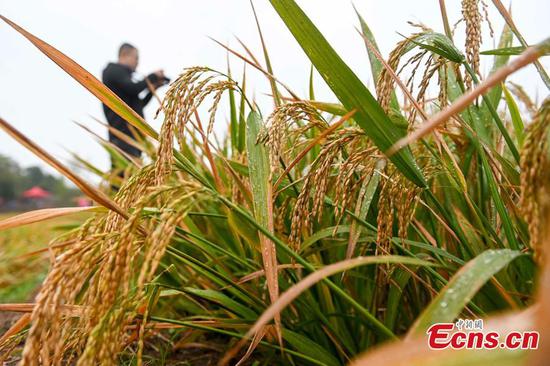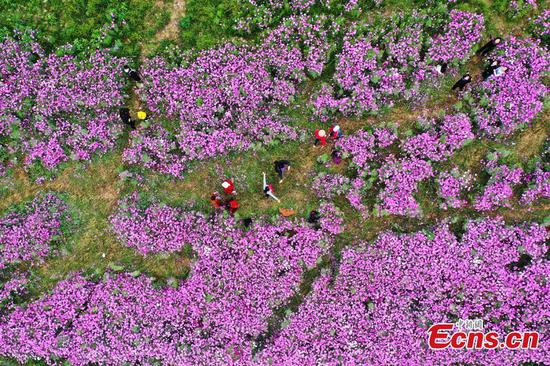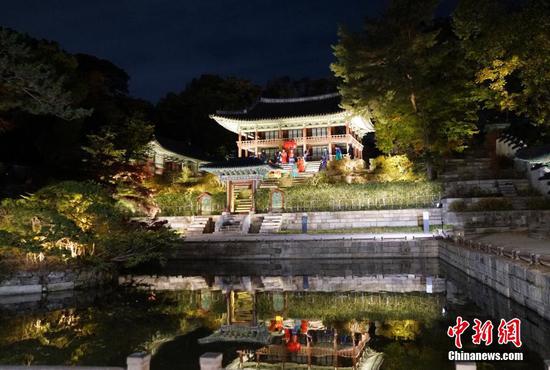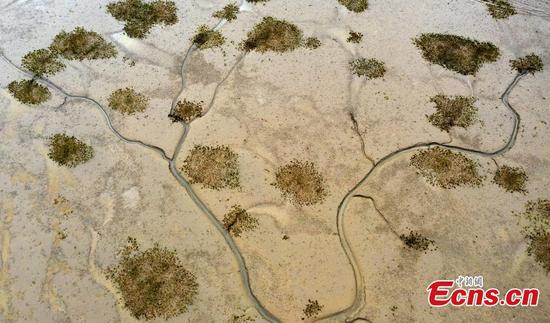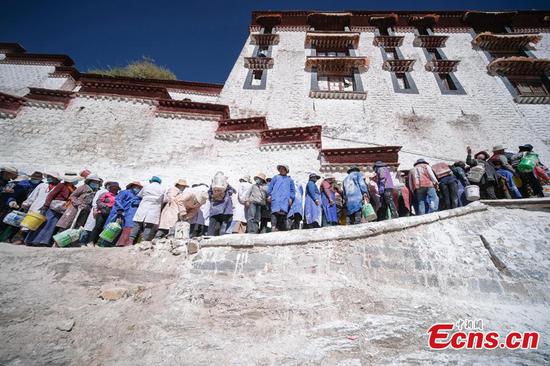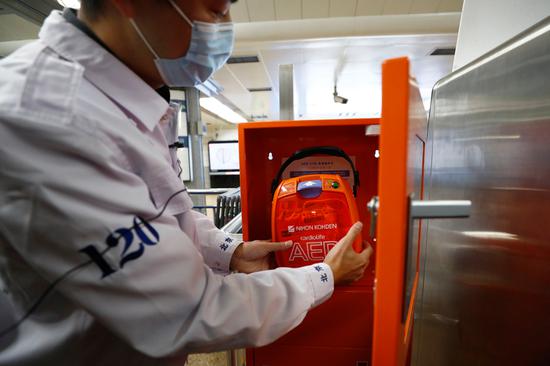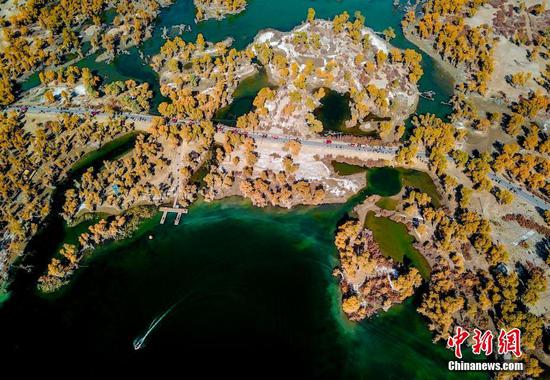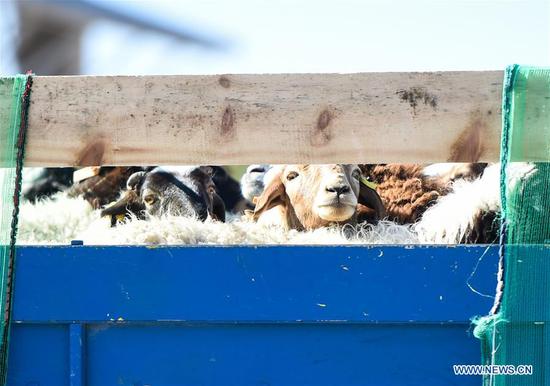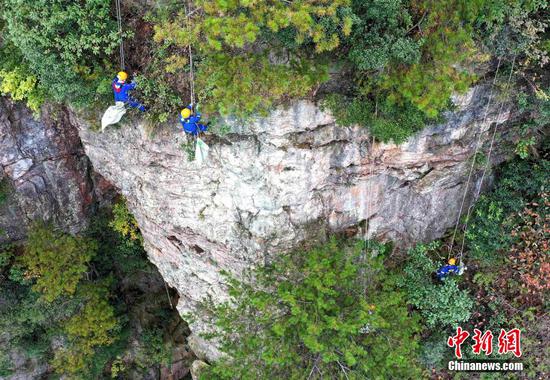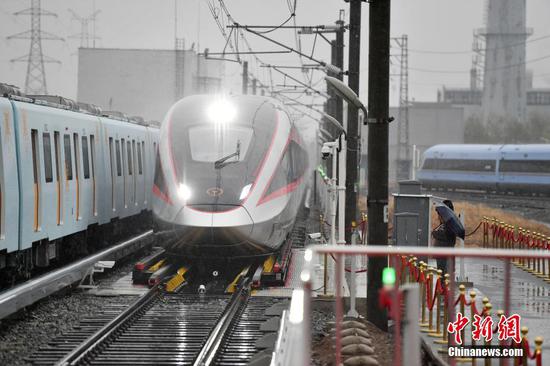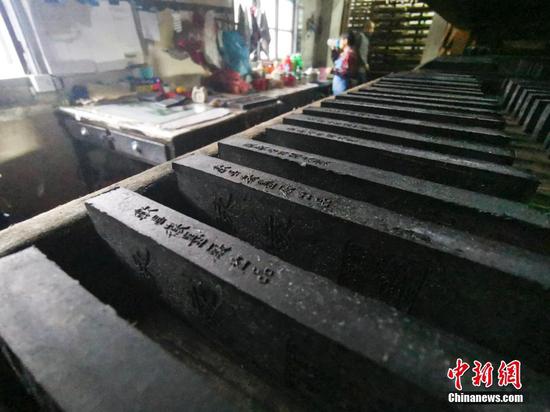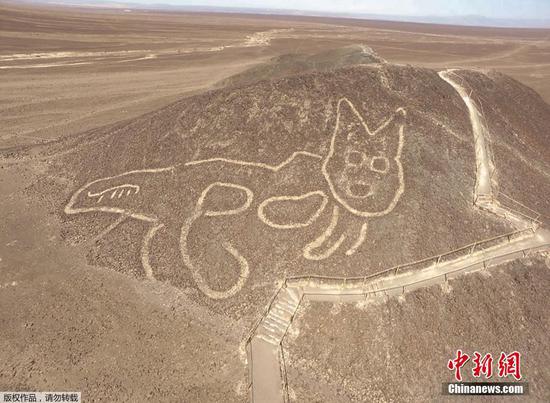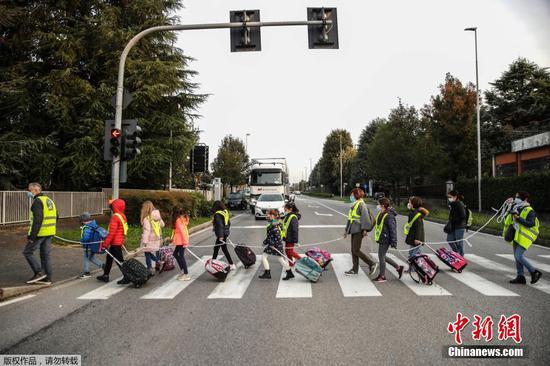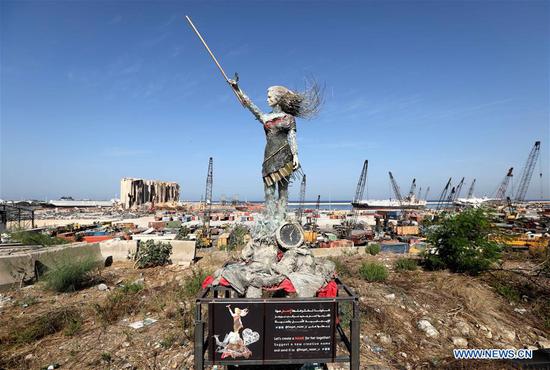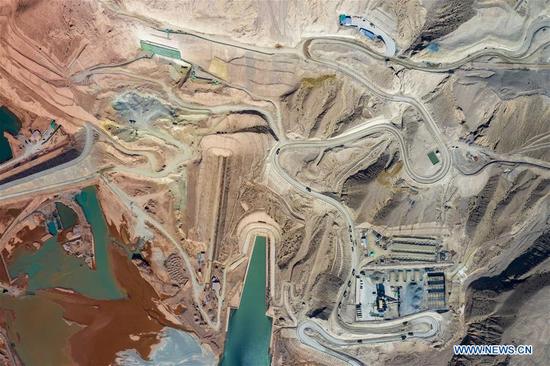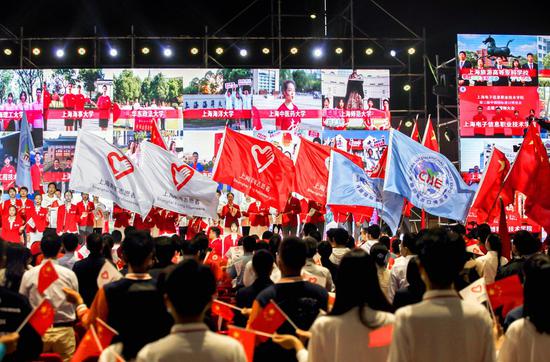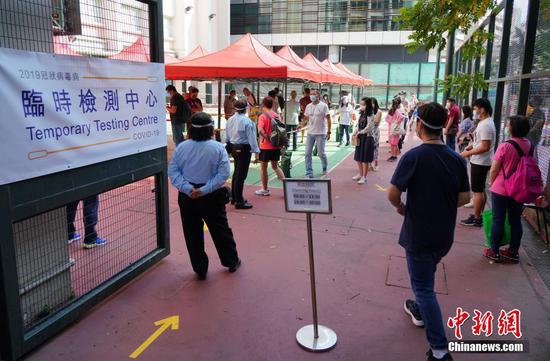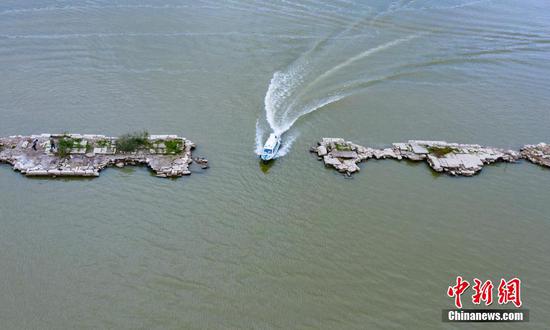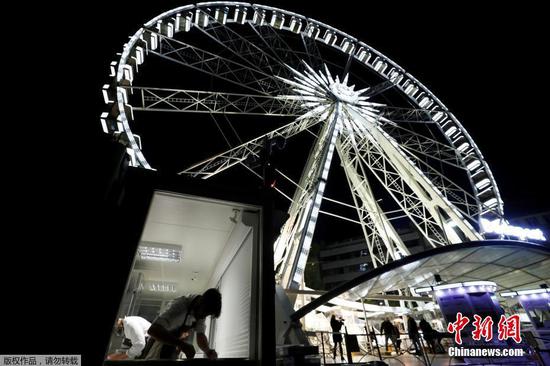
Thousands of Muslims from Kashgar's old town in the Xinjiang Uygur autonomous region flood into the region's biggest mosque Id Kah for jumah — Friday prayers — during the holy month of Ramadan, June 9, 2017. (Photo by Cui Jia/chinadaily.com.cn)
The Xinjiang Uygur autonomous region has always attached great importance to the protection and repair of mosques, and governments at all levels have not only helped and supported the improvement of mosques, but also ensured the religious needs of religious believers can be fully satisfied, according to a report on the freedom of religious belief in the region.
The claims of so-called "forced demolition of mosques" in Xinjiang by some Western countries are total nonsense. The fact is that some mosques in Xinjiang were built in the 1980s and 1990s or even earlier and the facilities in the mosques have become shabby with potential safety hazards. Therefore, the regional government has renovated dilapidated facilities and adjusted the overall layouts of those dangerous mosques. The followers are glad to see the improvement of the conditions of their mosques, according to the report published by the Xinjiang Islamic Association.
Also, it's up to the people to decide if they want to carry out religious activities such as daily prayers and fasting at the mosques or their home. Such activities have never been interfered with by anyone. During this year's Ramadan -- the month of fasting -- the local governments have assigned medical workers to care for those who perform religious activities at the mosques and prevent the spread of COVID-19. So it hurts to hear some Western countries claiming followers in Xinjiang have been deprived of their freedom of religion, according to the report.
What's more, the traditions of Muslims in Xinjiang are well-respected. All halal food is manufactured and distributed according to halal regulations. To fully respect Muslims' burial customs, the local governments have all assigned land to build Muslim cemeteries, it added.
Rooting out religious extremism is important for the healthy development of Islam in Xinjiang. It's sad to see religious extremists turning young Muslims into extremists and terrorists under their control. Religious extremism is never Islam, as it only intends to achieve its political goals by fooling devout Muslims. So religious extremism must be curbed, the report said.
The association urged certain Western countries including the United States to stop politicizing religious issues. Spreading rumors or slander cannot change the fact that people's freedom of religious belief in Xinjiang is fully protected.










